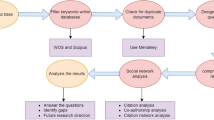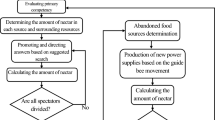Abstract
Distribution system service restoration is a process of restoring power outages through changing the on/off status of sectionalizing and tie switches within the whole power outage in a distribution system altered accordingly with its topological structure. Multi-agent Systems (MASs) can be applied for distribution system service restoration, an engineering optimization problem that can be addressed through metaheuristics, of a distribution system because service restoration planning can be made in parallel among intelligent software agents embedded inside sectionalizing and tie switches and feeders to form a distributed multi-agent environment such that the time of power restoration can be reduced. Service restoration planning can be built upon an MAS. This paper presents a three-tiered MAS-based Multi-Population Parallel Genetic Algorithm (MPPGA) and demonstrates its preliminary implementation to achieve service restoration planning for smart distribution system service restoration, which serves as a meta service restoration planner to perform efficient and fast switching operation for smart distribution system service restoration. The presented three-tiered MAS-based MPPGA is implemented, in Java programming language, on a Java Agent DEvelopment (JADE for short) platform, where in evolutionary computation (1) multiple populations are coevolved and (2) selection, crossover, and mutation operations for genetic search are parallelized. The effectiveness/feasibility of the presented three-tiered MAS-based MPPGA is demonstrated by a simulated distribution system and reported with simulation results.



















Similar content being viewed by others
References
Chidanandappa R, Ananthapadmanabha T, Ranjith HC (2016) Genetic algorithm based service restoration in distribution systems with multiple DGs for time varying loads. In: Proceedings of 2016 biennial international conference on power and energy systems: towards sustainable energy (PESTSE), Bengaluru, India, 21–23 January 2016, pp 1–7
Chidanandappa R, Ananthapadmanabha T, Ranjith HC (2015) Genetic algorithm based network reconfiguration in distribution systems with multiple DGs for time varying loads. Procedia Technol 21:460–467. https://doi.org/10.1016/j.protcy.2015.10.023
Huang Y-C, Chang W-C, Hsu H, Kuo C-C (2021) Planning and research of distribution feeder automation with decentralized power supply. Electronics 10:362. https://doi.org/10.3390/electronics10030362
Zidan A, Khairalla M, Abdrabou AM, Khalifa T, Shaban K, Abdrabou A, El Shatshat R, Gaouda AM (2017) Fault detection, isolation, and service restoration in distribution systems: state-of-the-art and future trends. IEEE Trans Smart Grid 8:2170–2185
Nasir MNM, Shahrin NM, Bohari ZH, Sulaima MF, Hassan MY (2014) A distribution network reconfiguration based on PSO: considering DGs sizing and allocation evaluation for voltage profile improvement. In: Proceedings of the 2014 IEEE student conference on research and development (SCOReD 2014), Penang, Malaysia, 16–17 December 2014, pp 1–6
de Freitas JT, Coelho FGF (2021) Fault localization method for power distribution systems based on gated graph neural networks. Electr Eng. https://doi.org/10.1007/s00202-021-01223-7
Huang M-Y, Chen C-S, Lin C-H (2005) Innovative service restoration of distribution systems by considering short-term load forecasting of service zones. Electr Power Energy Syst 27:417–427
Prabawa P, Choi D-H (2020) Multi-agent framework for service restoration in distribution systems with distributed generators and static/mobile energy storage systems. IEEE Access 8:51736–51752
Montoya OD, Gil-González W, Hernández JC, Giral-Ramírez DA, Medina-Quesada A (2020) A mixed-integer nonlinear programming model for optimal reconfiguration of DC distribution feeders. Energies 13:4440. https://doi.org/10.3390/en13174440
Maravilha AL, Goulart F, Carrano EG, Campelo F (2018) Scheduling maneuvers for the restoration of electric power distribution networks: Formulation and heuristics. Electr Power Syst Res 163:301–309
Hong H, Hu Z, Guo R, Ma J, Tian J (2017) Directed graph-based distribution network reconfiguration for operation mode adjustment and service restoration considering distributed generation. J Mod Power Syst Clean Energy 5:142–149
Dimitrijevic S, Rajakovic N (2016) Considering of healthy MV busbar feeders in the service restoration of distribution networks. Electr Eng 98:97–107
Tsai MS, Pan YT (2011) Application of BDI-based intelligent multi-agent systems for distribution system service restoration planning. Eur Trans Electr Power 21:1783–1801
Chang HC, Kuo CC (1994) Network reconfiguration in distribution system using simulated annealing. Elect Power Syst Res 29:227–238
Wagner TP, Chikhani AY, Hackam R (1991) Feeder reconfiguration for loss reduction: an application of distribution automation. IEEE Trans Power Deliv 6:1922–1931
Taylor T, Lubkeman D (1990) Implementation of heuristic search strategies for distribution feeder reconfiguration. IEEE Trans Power Deliv 5:239–246
Baran ME, Wu FF (1989) Network reconfiguration in distribution systems for loss reduction and load balancing. IEEE Trans Power Deliv 4:1401–1407
Civanlar S, Grainger JJ, Yin H, Lee SSH (1988) Distribution reconfiguration for loss reduction. IEEE Trans Power Deliv 3:1217–1223
Ibrahim S, Alwash S, Liao Y (2020) A binary water cycle algorithm for service restoration problem in power distribution systems considering distributed generation. Electr Power Compon Syst 48:844–857
Gholami M, Moshtagh J, Ghadernejad N (2015) Service restoration in distribution networks using combination of two heuristic methods considering load shedding. J Mod Power Syst Clean Energy 3:556–564. https://doi.org/10.1007/s40565-015-0139-6
Lakshminarayana C, Mohan MR (2009) A genetic algorithm multi-objective approach for efficient operational planning technique of distribution systems. Eur Trans Electr Power 19:186–208
Irving M, Luan W, Daniel J (2002) Supply restoration in distribution networks using a genetic algorithm. Int J Electr Power Energy Syst 24:447–457
Sahoo NC, Prasad K (2006) A fuzzy genetic approach for network reconfiguration to enhance voltage stability in radial distribution systems. Energy Conv Manag 47:3288–3306
Su CT, Chang CF, Chiou JP (2005) Distribution network reconfiguration for loss reduction by ant colony search algorithm. Elect Power Syst Res 75:190–199
Kim H, Kov Y, Jung KH (1993) Artificial neural-network based feeder reconfiguration for loss reduction in distribution systems. IEEE Trans Power Deliv 8:1356–1366
Hu Y-C, Lin Y-H, Lin C-H (2020) Artificial intelligence, accelerated in parallel computing and applied to nonintrusive appliance load monitoring for residential demand-side management in a smart grid: a comparative study. Appl Sci 10:8114. https://doi.org/10.3390/app10228114
Torlapati J, Clement TP (2019) Using parallel genetic algorithms for estimating model parameters in complex reactive transport problems. Processes 7:640. https://doi.org/10.3390/pr7100640
Holland JH (1992) Adaptation in natural and artificial systems: an introductory analysis with applications to biology, control, and artificial intelligence. MIT Press/Bradford Books, Cambridge
Guerra-Hernández A, Fallah-Seghrouchni AE, Soldano H (2004) Learning in BDI multi-agent systems. In: Proceedings of international workshop on computational logic in multi-agent systems (CLIMA 2004), Prague, Czech Republic, 18–19 August 2004, pp 218–233
Ben Mansour I, Basseur M, Saubion F (2018) A multi-population algorithm for multi-objective knapsack problem. Appl Soft Comput 70:814–825
Ye Y, Gao M, Ma Y, Shao W, Chen W, Yan Y, Ren H (2018) Multi-population genetic algorithm for peak-to-average power ratio suppression in an optical OFDM transmission system. Appl Opt 57:10191–10197
Huang Y, Ma X, Su S, Tang T (2015) Optimization of train operation in multiple interstations with multi-population genetic algorithm. Energies 8:14311–14329. https://doi.org/10.3390/en81212433
Fukuyama Y, Chiang HD (1996) A parallel genetic algorithm for service restoration in electric power distribution systems. Int J Electr Power Energy Syst 18:111–119
Chua TW, Tan WW (2011) Non-singleton genetic fuzzy logic system for arrhythmias classification. Eng Appl Artif Intell 24:251–259
Guo C, Yang Z, Wu X, Tan T, Zhao K (2019) Application of an adaptive multi-population parallel genetic algorithm with constraints in electromagnetic tomography with incomplete projections. Appl Sci 9:2611. https://doi.org/10.3390/app9132611
Acknowledgements
The Ministry of Science and Technology, Taiwan, under grant no. MOST 109-2221-E-027-121-MY2 supported in part this paper.
Author information
Authors and Affiliations
Corresponding author
Additional information
Publisher's Note
Springer Nature remains neutral with regard to jurisdictional claims in published maps and institutional affiliations.
Rights and permissions
About this article
Cite this article
Lin, YH. Multi-population evolutionary computing based multi-agent smart distribution system service restoration. Electr Eng 104, 3295–3311 (2022). https://doi.org/10.1007/s00202-022-01547-y
Received:
Accepted:
Published:
Issue Date:
DOI: https://doi.org/10.1007/s00202-022-01547-y




